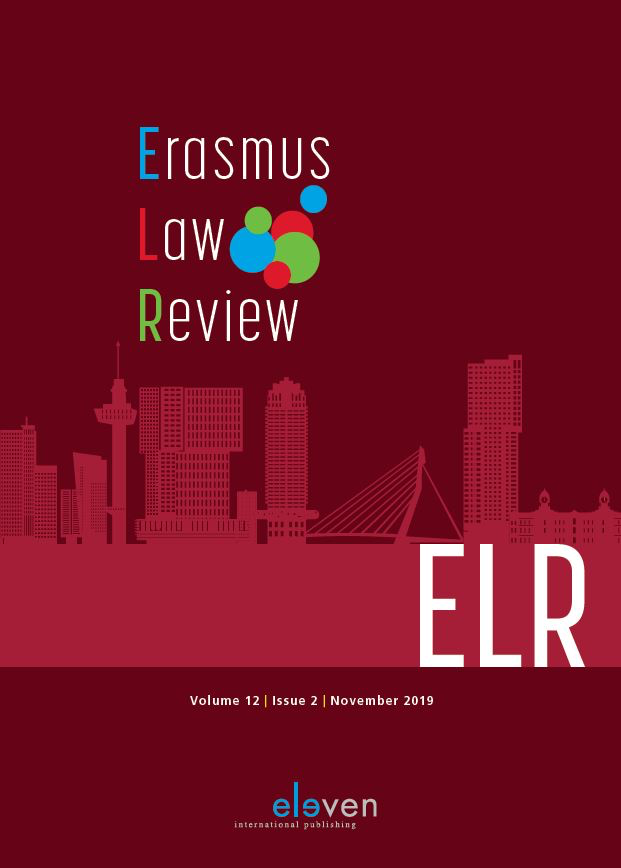|
The maxim ‘law in books and law in action’ relays an implicit dichotomy, and though the constitutive nature of law is nowadays commonly professed, the reflex remains to use law in books as an autonomous starting point. Law however, it is argued in this article, has a storyline that commences before its institutional formalisation. Law as ‘a continuous process of becoming’ encompasses both law in books and law in action, and law in action encompasses timelines both before and after the formal coming about of law. To fully understand law, it is necessary to understand the entire storyline of law. Qualitative studies in law and society are well equipped to offer valuable insights on the facets of law outside the books. The insights are not additional to doctrinal understanding, but part and parcel of it. To illustrate this, an ethnographic case study of local bylaws regulating an ethnically diverse public space of everyday life is expanded upon. The case study is used to demonstrate the insights qualitative data yields with regard to the dynamics in which law comes about, and how these dynamics continue for law in action after law has made the books. This particular case study moreover exemplifies how law is one of many truths in the context in which it operates, and how formalised law is reflective of the power constellations that have brought it forth. |


Erasmus Law Review
Over dit tijdschriftMeld u zich hier aan voor de attendering op dit tijdschrift zodat u direct een mail ontvangt als er een nieuw digitaal nummer is verschenen en u de artikelen online kunt lezen.
| Editorial |
|
| Auteurs | Peter Mascini en Wibo van Rossum |
| Auteursinformatie |
| Article |
|
| Trefwoorden | storylines of law, qualitative research, law in action, law in books |
| Auteurs | Danielle Antoinette Marguerite Chevalier |
| SamenvattingAuteursinformatie |
| Article |
|
| Trefwoorden | empirical legal research, Europe, popularity, increase, journals |
| Auteurs | Gijs van Dijck, Shahar Sverdlov en Gabriela Buck |
| SamenvattingAuteursinformatie |
Empirical Legal research (ELR) has become well established in the United States, whereas its popularity in Europe is debatable. This article explores the popularity of ELR in Europe. The authors carried out an empirical analysis of 78 European-based law journals, encompassing issues from 2008-2017. The findings demonstrate that a supposed increase of ELR is questionable (at best). |
| Article |
|
| Trefwoorden | evidence-based, regulation, proportionality, empirical law studies, law and society studies |
| Auteurs | Rob van Gestel en Peter van Lochem |
| SamenvattingAuteursinformatie |
|
Studies have shown that the effects of scientific research on law and policy making are often fairly limited. Different reasons can be given for this: scientists are better at falsifying hypothesis than at predicting the future, the outcomes of academic research and empirical evidence can be inconclusive or even contradictory, the timing of the legislative cycle and the production of research show mismatches, there can be clashes between the political rationality and the economic or scientific rationality in the law making process et cetera. There is one ‘wicked’ methodological problem, though, that affects all regulatory policy making, namely: the ‘jump’ from empirical facts (e.g. there are too few organ donors in the Netherlands and the voluntary registration system is not working) to normative recommendations of what the law should regulate (e.g. we need to change the default rule so that everybody in principle becomes an organ donor unless one opts out). We are interested in how this translation process takes place and whether it could make a difference if the empirical research on which legislative drafts are build is more quantitative type of research or more qualitative. That is why we have selected two cases in which either type of research played a role during the drafting phase. We use the lens of the proportionality principle in order to see how empirical data and scientific evidence are used by legislative drafters to justify normative choices in the design of new laws. |
| Article |
|
| Trefwoorden | law and society, sociology of law, sociolegal, empirical legal studies |
| Auteurs | Daniel Blocq en Maartje van der Woude |
| SamenvattingAuteursinformatie |
|
This article aims to deepen scholarly understanding of the Law and Society Movement (L&S) and thereby strengthen debates about the relation between Empirical Legal Studies (ELS) and L&S. The article departs from the observation that ELS, understood as an initiative that emerged in American law schools in the early 2000s, has been quite successful in generating more attention to the empirical study of law and legal institutions in law schools, both in- and outside the US. In the early years of its existence, L&S – another important site for the empirical study of law and legal institutions – also had its center of gravity inside the law schools. But over time, it shifted towards the social sciences. This article discusses how that happened, and more in general explains how L&S became ever more diverse in terms of substance, theory and methods. |

 Aflevering 4
Aflevering 4